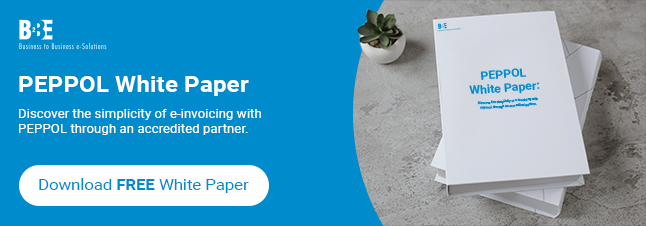PEPPOL is becoming one of the most common regulatory requirements for enabling standardised electronic invoicing and e-procurement. For businesses across the globe, it requires careful consideration of their needs and goals as well as how PEPPOL compliance can benefit them.
Whether you are a small start-up or a multinational corporation, it is crucial to know what happens next in your partnership with a PEPPOL access point. It is completely natural to have questions and concerns when planning to partner with a PEPPOL. You may wonder about the integration process, level of support you’ll receive, and the impact on your day-to-day operations.
How a PEPPOL Access Point Works
When you work with an access point, you’re essentially connecting your business to the PEPPOL e-delivery network. This facilitates electronic document exchange, particularly e-invoicing, among trading partners. Here’s what typically happens when you engage with an access point:
Integration
The PEPPOL access point provider helps integrate your existing systems or invoicing software with the PEPPOL network. This integration ensures your electronic documents, such as invoices and purchase orders, are transmitted properly between your business and your trading partners.
Onboarding
The access point provider assists in onboarding your business onto the network. This may involve obtaining necessary identifiers and certificates required for participation, such as Participant Identifiers (PEPPOL IDs) and Public Key Infrastructure (PKI) certificates.
Bekijk onze video hieronder:
Document Exchange
Once integrated and onboarded, your business can start exchanging electronic documents with other participants on the network. This includes sending and receiving invoices, purchase orders, order responses, and other transactional documents in a standardised electronic format. Here, the access point acts as a gateway, ensuring that documents are securely transmitted and compliant with PEPPOL specifications.
Standaardisatie
PEPPOL Access Points are very important when it comes to standardising document exchange processes across different trading partners and systems. These access points are experts in PEPPOL standards and protocols. They ensure consistency across electronic document exchange, regardless of the participants’ preferred systems or software.
Compliance and security
Access point providers make sure that your business remains compliant with PEPPOL requirements and regulatory standards for electronic document exchange. This includes implementing security measures to safeguard sensitive information and prevent unauthorised access or data breaches. Access points also handle encryption and decryption of documents to ensure confidentiality and integrity during transmission.
Technical support
Access point providers offer ongoing technical support to assist your business with any issues or challenges related to integration and document exchange. Some of their services include troubleshooting connectivity issues, resolving formatting errors, and providing guidance on best practices for utilising the PEPPOL network effectively.
Overall, working with an access point allows you to have a seamless integration process, comprehensive onboarding support, streamlined document exchange, adherence to standardised protocols, compliance and security measures, and ongoing technical support. Each step is designed to ensure that your journey to PEPPOL compliance is smooth and hassle-free.
Take the next step towards optimising your supply chain by reading the First Steps to our PEPPOL Access Point services today.
About B2BE
B2BE delivers electronic supply chain solutions globally, helping organisations to better manage their supply chain processes, providing greater levels of visibility, auditability and control. We’re driven by a passion for what we do, inspired by innovation, and underpinned by a wealth of knowledge. With over 20+ years of experience, the B2BE teams operate worldwide.
Ga voor meer informatie naar www.b2be.com.

